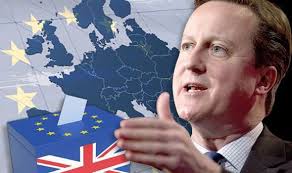In light of the upcoming referendum on the UK’s membership of the EU, it is important to understand the nature of the UK’s current status within the EU, and the alternatives. This briefing consists of a critical analysis of the alternatives to EU membership and the prospects of success for the UK’s stated negotiating objectives.
Executive Summary: This paper examines eight scenarios – three where the UK remains a member of the EU and five where it is no longer a member. This paper also undertakes a critical, technical analysis, of the prospects of success for the UK’s stated negotiating objectives and their implications.
Some key points that emerge from this analysis are as follows: n
The UK’s current membership of the EU is already highly tailored. While the phrases “Swiss option” and “Norwegian option” are commonly used in the debate about Britain and Europe, one could just as well add “UK option” on the grounds that it is unique to Britain.
The UK has full access to the Internal Market, can vote and has the right to be represented in the EU’s institutions, but has secured opt-outs from policy areas such as the Single Currency, the Schengen free movement area and various Justice and Home Affairs measures.
The UK’s negotiating objectives fall under four headings: jobs and growth, safeguards for non-euro members, more powers for national parliaments and reforms in relation to migration. Reforms in all of these areas are feasible.
The most legally challenging area is migration, as many of the changes proposed by the UK would require changes to the EU Treaties, which in turn would require unanimous agreement of the EU’s 28 Member States.
A possible way of securing the reforms would be to agree a legally binding protocol, similar to the “Edinburgh Agreement” signed in favour of the Danish in 1992, which would have immediate effect and be fully integrated into the Treaties at a later date. n
The EU is continuously changing and reforming, in terms of its institutional make-up, legal basis and policies. Reform or renegotiation is not a one-off exercise, however the UK’s strategy of renegotiation has the opportunity to feed into that process, and any UK agreement could be the basis for a significant “reset” of the UK’s troubled relationship with the EU.
The UK has a strong track record of being able to influence the EU in areas where the UK has strategic interests, for example in being instrumental in creating the Internal Market, and more recently in reducing the EU’s budget and achieving voting rules designed to protect the interests of non-euro members in the European Banking Authority. n
None of the alternatives to full EU membership would afford the UK the same level of market access, rights or legal protections that it is currently entitled to.
The other common feature of the “out” scenarios is that each comes with a high risk of uncertainty for financial services and other areas of the UK economy as the period required to arrive at a new settlement with the EU would be complicated and extremely time consuming.





